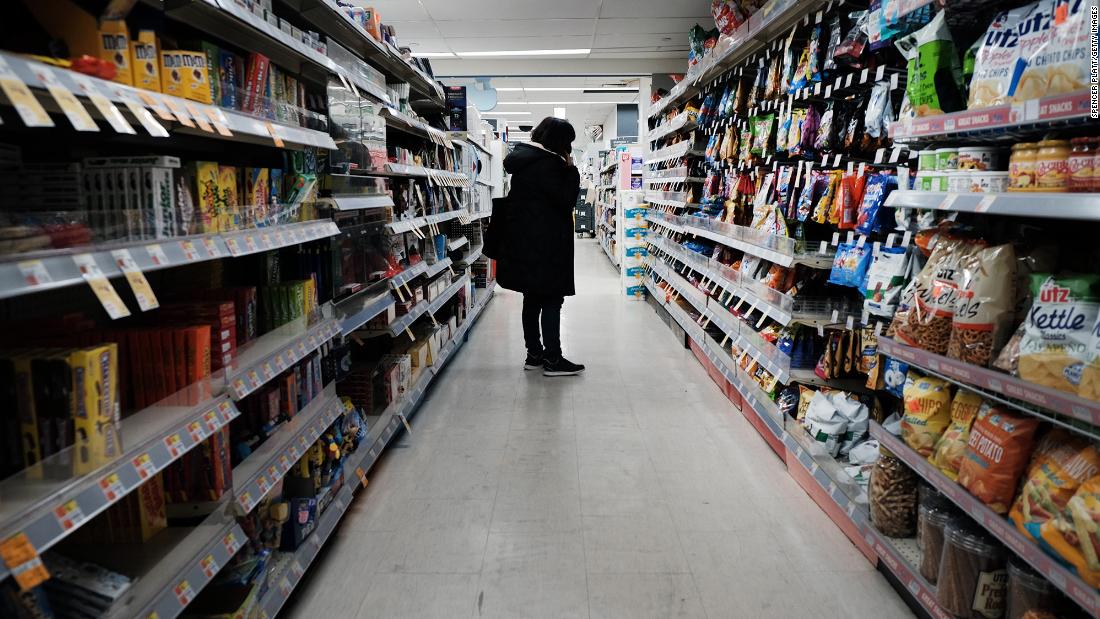The Federal Reserve's fight against inflation will spark a recession in the United States that begins late next year, Deutsche Bank warned on Tuesday.
The recession call -- the first from a major bank -- reflects growing concern that the Fed will hit the brakes on the economy so hard that it will inadvertently end the recovery that began just two years ago.
"We no longer see the Fed achieving a soft landing. Instead, we anticipate that a more aggressive tightening of monetary policy will push the economy into a recession," Deutsche Bank economists led by Matthew Luzzetti wrote in the report.
That forecast is driven by red-hot inflation, with consumer prices rising at the fastest pace in 40 years. Hopes that inflation would rapidly cool off have been dashed, in part because of the war in Ukraine.
Inflationary pressures have broadened out, raising concern that the Fed will have to rapidly raise interest rates to get prices under control. Deutsche Bank pointed to how energy and food commodity prices have spiked since Russia invaded Ukraine.
"It is now clear that price stability...is likely to only be achieved through a restrictive monetary policy stance that meaningfully dents demand," the Deutsche Bank economists wrote.
Although Deutsche Bank cautioned there is "considerable uncertainty" around the exact timing and size of the downturn, it's now calling for the US economy to shrink during the final quarter of next year and the first quarter of 2024, "consistent with a recession during that time."
The good news is Deutsche Bank is not forecasting a deep and painful recession like the past two downturns.
Rather, the bank expects a "mild recession," with unemployment peaking above 5% in 2024. That would still translate to considerable layoffs. During the Great Recession unemployment peaked at far higher levels of 14.7% in 2020 and 10% in 2009.

 www.cnn.com
www.cnn.com
The recession call -- the first from a major bank -- reflects growing concern that the Fed will hit the brakes on the economy so hard that it will inadvertently end the recovery that began just two years ago.
"We no longer see the Fed achieving a soft landing. Instead, we anticipate that a more aggressive tightening of monetary policy will push the economy into a recession," Deutsche Bank economists led by Matthew Luzzetti wrote in the report.
That forecast is driven by red-hot inflation, with consumer prices rising at the fastest pace in 40 years. Hopes that inflation would rapidly cool off have been dashed, in part because of the war in Ukraine.
Inflationary pressures have broadened out, raising concern that the Fed will have to rapidly raise interest rates to get prices under control. Deutsche Bank pointed to how energy and food commodity prices have spiked since Russia invaded Ukraine.
"It is now clear that price stability...is likely to only be achieved through a restrictive monetary policy stance that meaningfully dents demand," the Deutsche Bank economists wrote.
Although Deutsche Bank cautioned there is "considerable uncertainty" around the exact timing and size of the downturn, it's now calling for the US economy to shrink during the final quarter of next year and the first quarter of 2024, "consistent with a recession during that time."
The good news is Deutsche Bank is not forecasting a deep and painful recession like the past two downturns.
Rather, the bank expects a "mild recession," with unemployment peaking above 5% in 2024. That would still translate to considerable layoffs. During the Great Recession unemployment peaked at far higher levels of 14.7% in 2020 and 10% in 2009.

Deutsche Bank is the first big bank to forecast a US recession
The Federal Reserve's fight against inflation will spark a recession in the United States that begins late next year, Deutsche Bank warned on Tuesday.


